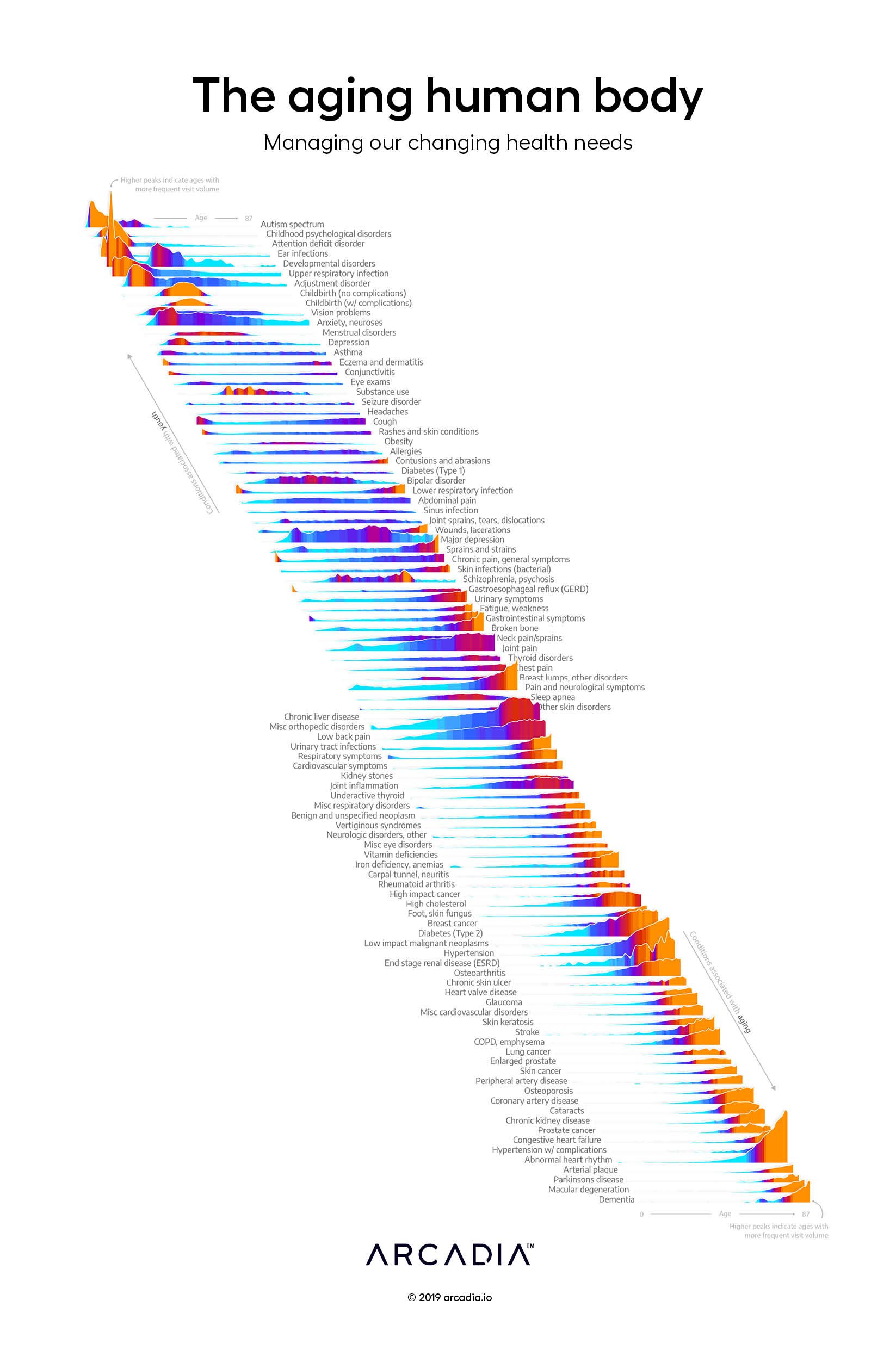The aging human body: Managing our changing health needs

For many of us, our experience with the healthcare system comes through a series of personal events, each providing a narrow window into a complex system. We break a bone, catch the flu, treat our asthma. But our bodies are intricate, highly variable, and constantly changing with time. The narrow windows we peer through are tiny pixels in the larger mosaic of our collective healthcare needs.
To fully appreciate the complexity of healthcare is an exercise in empathy, for it is a system designed to support not just individuals, but the composite whole. We understand and rationalize our own needs but often question or stigmatize the needs of others. In this visual, the artist has analyzed tens of millions of healthcare claims across hundreds of thousands of patients to more holistically understand our collective healthcare experience.
The artist isolated 100 of the most common diseases and clinical events and for each, plotted the frequency of diagnosis from birth through 87 years of age. The frequency rates are presented with colors and height, and the conditions are sorted based on the average age of occurrence.
At the top we see conditions most frequently diagnosed in youth: attention deficit disorder, ear infections, and upper respiratory infections. At the other end of the spectrum, we find conditions most associated with age: dementia, Parkinson’s disease, cataracts and different types of cancer. In between we see the variability and complexity of our shared experience. Depression and anxiety, substance abuse, chronic pain, fatigue. Urinary conditions and sleep apnea. Kidney stones and carpal tunnel.
The specifics of each of our healthcare needs vary greatly, but we are unified in our common need for something. We occupy imperfect, aging corporeal structures. We all break, and fail, and heal, and scar. There is no stigma or shame in what is universal.
Details
D3.js, with Illustrator
Data sourced from Commercial, Medicare and Medicaid claims from Arcadia Benchmark
